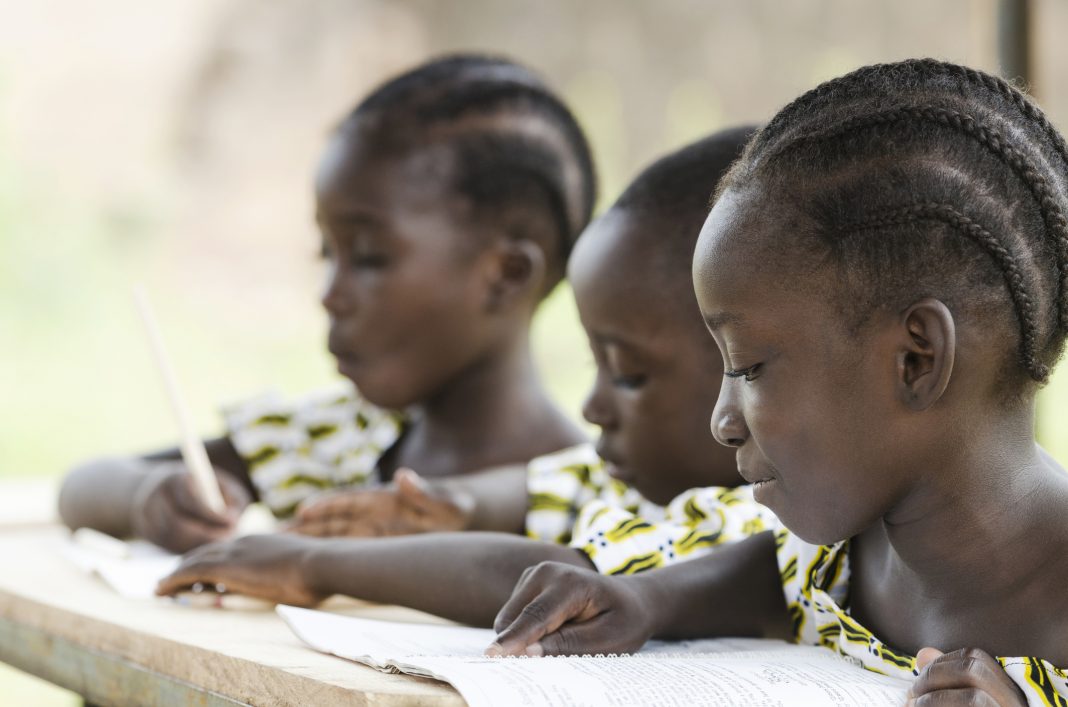Many teachers took on ‘humanitarian roles’ during COVID-19 school closures, aiming to improve girls’ education – as well as providing healthcare and safeguarding
During the school closures due to COVID-19, efforts to improve girls’ education have been taken on by educators, as found by interviews with teachers across Afghanistan, Ghana and Sierra Leonne.
In a Government-commissioned report assessing UK-funded GEC projects for marginalised girls, researchers found that when COVID-19 forced schools to close, the roles of educators working for these projects expanded dramatically.
Around 85% of the teachers which were interviewed by researchers had provided some form of physical or mental health assistance on top of their educational duties.
Many teachers went to great lengths in providing critical healthcare, safeguarding and pastoral care to girls who were at extreme risk of dropping out of education.
Teachers as trusted confidantes for girls
Analysing 10 GEC projects, with a database using teacher networks, volunteers, and ‘para-educators’ – like mentors – to meet the complex challenge of supporting girls in communities that are under-resourced, remote and often in recent or current war zones, the researchers focused on two projects in Afghanistan, and one each in Ghana and Sierra Leone.
Their study attained interviews with staff, pupils, government officials and took classroom observations, all undertaken before the international withdrawal from Afghanistan in August 2021.
These countries were selected in the study as the enrolment, attainment, and educational opportunities for girls is low. The pandemic only worsened this case as schools closed – where families would have expectations for girls to perform domestic or income-generating labour, or get married, rather than learn.
Additionally, remote learning programmes also failed to reach most girls, who frequently did not have computers, televisions and radios, and in some cases, even reliable electricity supply.
This can be seen in Ghana, for instance, where 80% of the pupils interviewed were aware that TV lessons were being broadcast in their country, but only 34% had been able to watch them.
Professor Pauline Rose, Director of the Research for Equitable Access and Learning (REAL) Centre, University of Cambridge, and one of the authors, said: “When schools closed, the GEC projects underwent a transformation, operating not just as educational initiatives, but assuming a humanitarian role. Without this, the pandemic’s impact on girls’ learning might have been even more severe.”
Protecting the welfare of female students
The report identified that educators on the GEC projects took numerous roles – especially female, community-based teachers, who managed to acquire vital face-to-face contact with students. For safeguarding reasons, male staff were less able to do the same.
These teachers helped refer pupils who were struggling to community or social services, while many distributed COVID-19 safety information and dropped off PPE supplies. Many teachers also helped pregnant girls, or in one case, providing support to a student with epilepsy.
Project managers also distributed TVs and decoders to households for students to watch their lessons, and for teachers to be given mobile phones so that they could stay in touch with students.
This proved critically important for pupils who largely struggled with self-directed learning. They also prepared teachers with extra training, with other vital knowledge such as psychological first aid, stress management, wellbeing support, and COVID-19 mitigation.
One Afghan girl in the report stated: “The lack of guidance prevented us from studying so we could not read our lessons well. When I called the teacher, our mobile card ran out.”
Additional wellbeing support is needed for teachers, too
Furthermore, teachers received child protection and gender equality training, as a response to a rise in gender-related violence. This was found in the Sierra Leonean project, which identified that 19% of girls and 20% of female mentors reported increased violence towards women and girls during the pandemic, rising to 38% in one district.
The additional training teachers received during the pandemic apparently improved job capabilities by attending to the welfare of their students, but researchers state that not enough attention had been paid to their own wellbeing, especially for female teachers.
Rose added: “The additional work they were shouldering affected their own mental health, led to work-related burnout, and put extra pressure on their home life.
“As we start to build back from COVID-19, we need to examine what these additional expectations and pressures mean for teachers and education systems. We should look particularly hard at the implications for burnout, recruitment, retention and training.”
The report is for the UK Foreign, Commonwealth and Development Office, assessing the Government-backed ‘Girls’ Education Challenge’ (GEC), providing literacy, numeracy and life skills education to a million of the world’s most marginalised girls.











